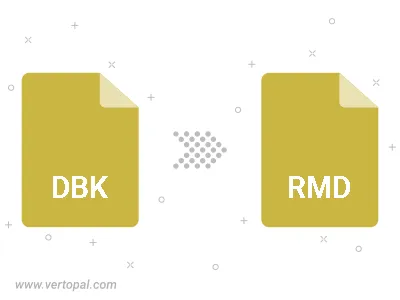Convert DBK to RMD
Convert DBK markup documents to RMD format, edit and optimize documents online and free.

The DBK file extension stands for DocBook Technical Document, a semantic markup language used for creating technical documentation in a format-neutral way. Initially developed for computer hardware and software documentation, it allows content to be easily converted into various formats like HTML and PDF. DocBook has become a standard for technical documentation due to its flexibility and open-source nature.
The RMD file extension stands for "R Markdown Document". It is primarily used in data analysis and reporting workflows within the R programming environment. RMD files allow users to incorporate executable R code, along with text, into a single document, facilitating the creation of dynamic and reproducible reports. The format was introduced as part of the RStudio IDE to streamline the documentation process and enhance data storytelling capabilities. Over time, it has become integral in fields such as data science and academia due to its versatility and ease of use in generating comprehensive reports and presentations.
Select the DBK markup document you want to process by browsing your computer.
Choose optional DBK to RMD tools for advanced conversion.
You will be redirected to the download page to obtain the RMD markup document.

Use Vertopal CLI to process DBK markup document and export as RMD markup document.